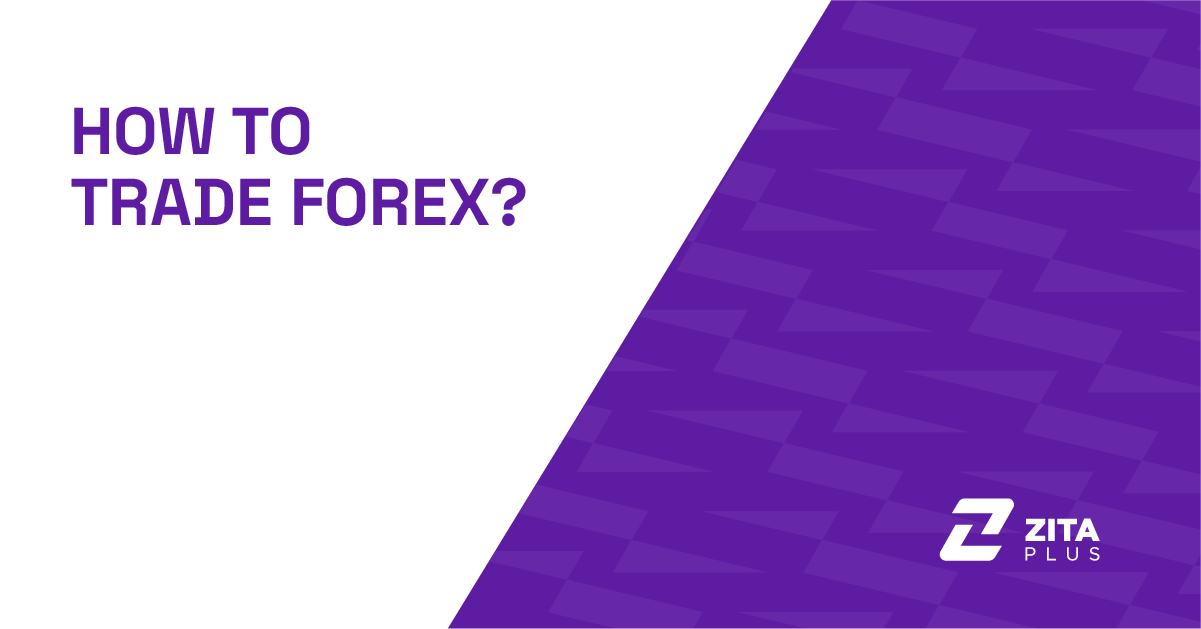
Forex trading (foreign exchange trading) is the process of buying and selling currencies for profit on the global market. Unlike other financial markets, the forex market operates 24/5, making it easier for traders all around the world to trade.
Currencies are traded in pairs such as EUR/USD (euro/US dollar) or GBP/JPY (British pound/Japanese yen). Each pair represents the exchange rate between two currencies. The pairs indicate how much of the quote currency is needed to purchase one unit of the base currency.
It is possible to trade forex using different methods such as futures, options, and ETFs (exchange-traded funds). Most individual traders participate in the spot market, where currencies are bought and sold for immediate delivery. This market is characterized by high liquidity and tight spreads. That is why the forex market is an attractive choice for all kinds of traders.
If you are trading forex for the first time, there is a simple procedure you should be aware of. Here are the steps to start trading:
Starting to trade forex begins with finding a reputable broker. Select a broker that aligns with your trading goals. Usually, traders look for regulations, feeds, margin rates, and competitive spreads in a broker. A good broker will also provide educational resources and customer support.
ZitaPlus offers all the necessary elements to give you a smooth trading experience.
After choosing a broker, the next step is to open a trading account. The process is similar in all brokers, however, it is very simple on ZitaPlus. Here's how it's done:
Once your account is set up, you can start selecting currency pairs to trade. If you are new to forex, then you might consider starting with more liquid major pairs such as EUR/USD or GBP/USD. Minors and exotics are more volatile with higher spreads and risk but with also more potential profits.
If the pairs are traded more commonly (majors), it means that these pairs are less subject to sudden and unpredictable movements. That is why it is easier to analyze and trade them. However, minor and exotic pairs especially are prone to more unpredictable movements. Although they are more risky, it is possible to get more profit by trading these currency pairs.
Trading forex requires a follow-up of the market. So, it is important to analyze the direction of the market and decide whether to buy (go long) or sell (go short).
You can both fundamental and technical analysis techniques for this decision. Technical elements such as moving averages and RSI can help you see the direction of the market. Fundamental elements such as data releases and geopolitical events can show you how the currency values will be affected by these movements.
During your trades, you can minimize the risk by setting stops and limits. A stop-loss order will automatically close your position if the market moves against you by a certain amount, protecting you from significant losses. You can also use a take profit order which ensures that your trade is closed once it reaches your targeted profit level.
After you have conducted analyses and taken precautions, you can open a position. This involves specifying the trade size, also known as the lot size, which determines the amount of capital you're risking on the trade. It's important to balance your position size with your overall risk tolerance and account balance. You have to ensure that no single trade can significantly impact your trading capital.
When your trade hits the take profit or stop loss level, or if you want to close the trade manually, you finalize the trade by closing the position.
This action locks in your profit or loss. After closing, it's better to review the trade. Be sure that what went well and what could be improved, helping you refine your strategy for future trades.
Forex trading involves understanding the fundamentals and following a structured approach. By carefully selecting a reputable broker, setting up a trading account, and choosing the right currency pairs to trade, you lay a strong foundation for success. Also, knowing when to buy or sell and using stop loss and take profit orders are a vital part of the process.
As you continue to trade forex, you can improve your skills and find ways to profits easier. Don't forget to work with a reputable broker. Once you select a good broker, then it can work for you to have a smooth trading experience.
How to learn trading forex?
You can learn forex trading through online courses, educational resources provided by brokers, and by practicing on a demo account to build your skills without risking real money. ZitaPlus offers both educational content and a demo account for newcomers!
How can I start trading forex as a beginner?
Begin by choosing a reliable broker, opening a trading account, and using a demo account to practice. Start with basic strategies and gradually move to more advanced techniques as you gain experience.
Do you offer a demo account?
Yes, we do. A demo account is available at ZitaPlus, allowing you to practice trading in a risk-free environment
What is the minimum capital needed to trade forex?
At ZitaPlus, you can start trading forex with as little as $10.
How long does it take to learn forex?
The time it takes to learn forex varies, but with constant study and practice, many traders feel comfortable within a few months or a year.
Would like to learn how to look financial markets from a different angle? Then keep reading and invest yourself with ZitaPlus.